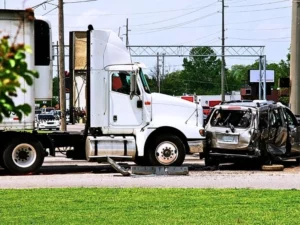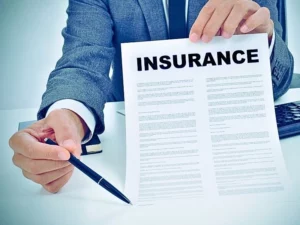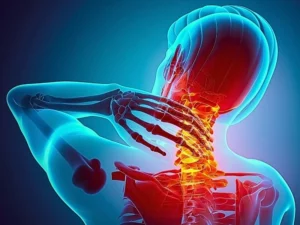The value of a car accident case in Chicago is determined by the extent of the injuries, the amount of lost wages, medical bills, and related financial losses, and the percentage of fault assigned to each driver or responsible entity. No auto accident attorney can predict the exact value of a crash, but experienced lawyers can typically provide clients with fairly accurate estimates.

Who Is at Fault for the Accident?
Determining fault in a car crash is the most important factor in determining the value of damages. Fault must be determined before awarding compensation for damages. To help determine fault, law enforcement will investigate the situation by talking to all involved parties and reviewing the scene. Police officers usually look for physical evidence like the impact of the crash, placement of vehicles, visible skid marks, and obstructions in the road or in the area. All of these factors help police officers to determine who’s at fault for the accident. A police report will be filed that notes important factors, as well as the extent of injuries and property damages. Photos of the accident scene may be included in the police report file.
When a personal injury claim or lawsuit is filed with an auto accident attorney, fault plays a significant role in collecting compensation for damages. Car accident claims are normally paid by insurance companies who provide auto coverage. Insurers look closely at police reports, determination of fault, and insurance policy limitations and restrictions before awarding any damages. To avoid costly court trials and large payouts, many insurers offer injury victims low settlement payments to end the case quickly and maximize their profits. If a personal injury lawsuit is filed, the court weighs all evidence to determine fault and compensation for damages.
How are Damages Awarded?
In addition to property damages for a vehicle, a car accident victim may sustain minor or major injuries that lead to medical expenses, lost income, and pain and suffering. If an injury victim dies from his/her injuries, family members are often left with funeral and burial costs and other expenses incurred by the victim’s family. Damages for car accidents are usually divided into two categories – economic damages (special damages) and non-economic damages (general damages).
- Economic damages include current and future medical expenses, lost wages, future lost income, and property damages. In most car accident cases, economic damages are easy to calculate because they are based on physical evidence.
- Non-economic damages cover pain and suffering. Non-economic damages are more difficult to calculate because they include unknown factors such as physical discomfort, stress, sleep disorders, and mental depression or anxiety. With these types of injuries, it is difficult to determine the impact on a claimant’s day-to-day life.
If a driver is found to be 100% responsible for a car accident, he/she is responsible for 100% of the damages. If the driver is only found to be 70% responsible, his/her liabilities are reduced by the remaining 30%. For instance, if total damages are calculated at $50,000, the liability would be reduced by $15,000, making the driver responsible for only $35,000 on the accident claim.
What are Illinois Car Insurance Laws?
Like most states in the country, Illinois follows a fault insurance system when it comes to determining liability in a car accident. This means that the driver who causes the accident is considered liable for any personal injuries and/or property damages that result from the accident.
State mandatory insurance laws require all vehicle owners to carry liability insurance for any vehicle that is registered in the state. Mandatory insurance requirements include the following minimum liability coverage:
- $25,000 – covers the injury or death of one person in a car accident caused by the insured driver
- $50,000 – covers the total allowed for all injuries or deaths in an accident caused the insured driver
- $20,000 – covers damage to the property of another person in an accident caused by the insured driver
Mandatory basic liability coverage pays for medical bills, property damages, and other costs of drivers, passengers, and pedestrians who are injured or have their vehicle damaged in a car accident, up to insurance liability limits. Once policy limits are exhausted, the driver is personally responsible for remaining financial obligations.
Basic liability coverage does not cover the insured driver’s injuries or property damages in a car accident. Personal injury protection (PIP) or MedPay coverage can be used to pay the insured’s medical bills, and collision coverage is used to pay for car repairs or replacement of the insured’s vehicle. In Illinois, uninsured motorists coverage is automatically included in basic liability coverage, up to policy limits.







